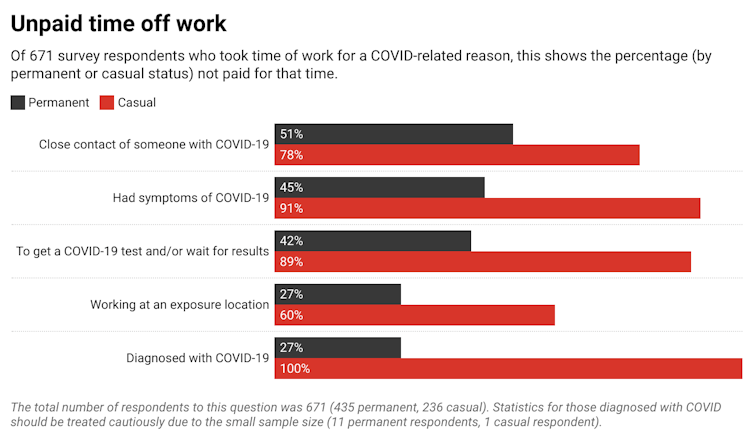Things look worse for casual workers than at any time during the pandemic
- Written by Ariadne Vromen, Professor, Crawford School of Public Policy, Australian National University

At the national Australia Day ceremony in 2021, Prime Minister Scott Morrison spoke of the contribution by frontline workers during the pandemic. He mentioned[1] health workers, the defence forces, the police and farmers, as well as “the truck drivers, the wholesale and the retail workers keeping our supermarket shelves stocked”.
In his 2022 Australia Day speech[2] only defence personnel and health workers got a mention – possibly due to the disappearing government support for retail and logistics workers during the Omicron wave.
With Omicron crippling supply chains and businesses being forced to shut due to lack of staff, eligibility rules for the last remaining COVID-related support payment (the Pandemic Leave Disaster Payment[3]) have been tightened, and the payments available cut.
The definition “close contact[4]” has been weakened and tens of thousands of workers have been made exempt from isolation protocols[5] by now being classified as “essential”.
Many frontline workers – namely those on casual contracts – are facing the toughest circumstances since the the pandemic began.
With no right to guaranteed minimum hours, sick leave or the other entitlements, those employed as casual workers or as subcontractors are likely to lose income – either due to having to take time off to get tested or self-isolate, or because their workplace hasn’t got enough staff to stay open. There is also a much higher proportion of casual workers in the retail sector, than in the Australian workforce as a whole[6].
Our research[7] on the effects of the pandemic on income and conditions for workers between March 2020 and September 2021 shows 55% of those working in retail, fast-food and distribution were forced to take time off work for COVID-related reasons – with a significant percentage losing income as a result.
















